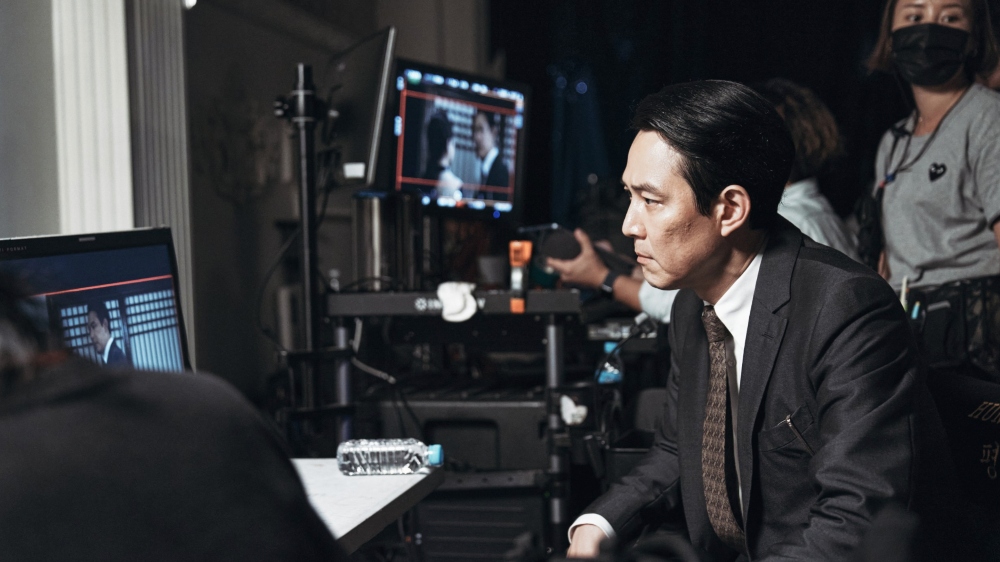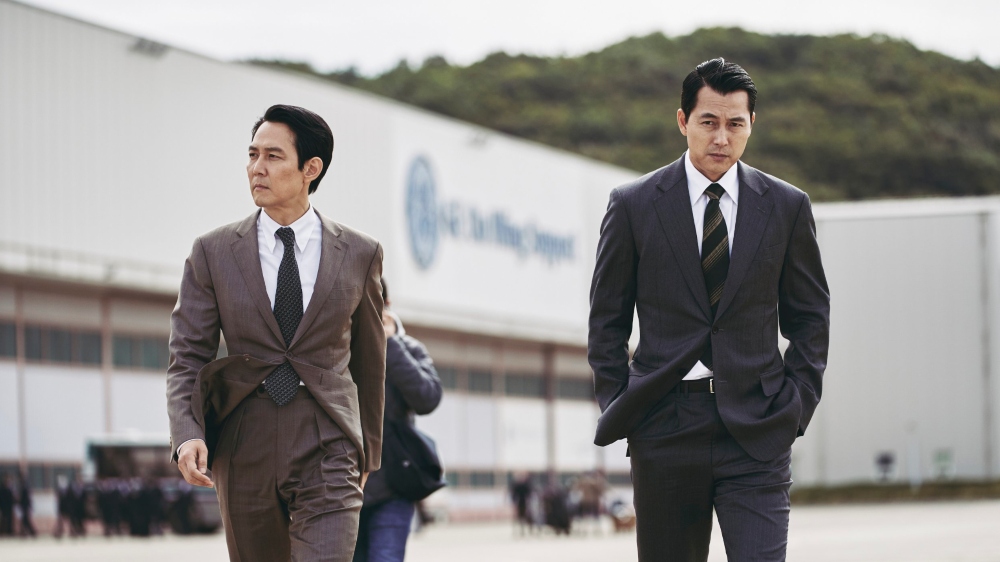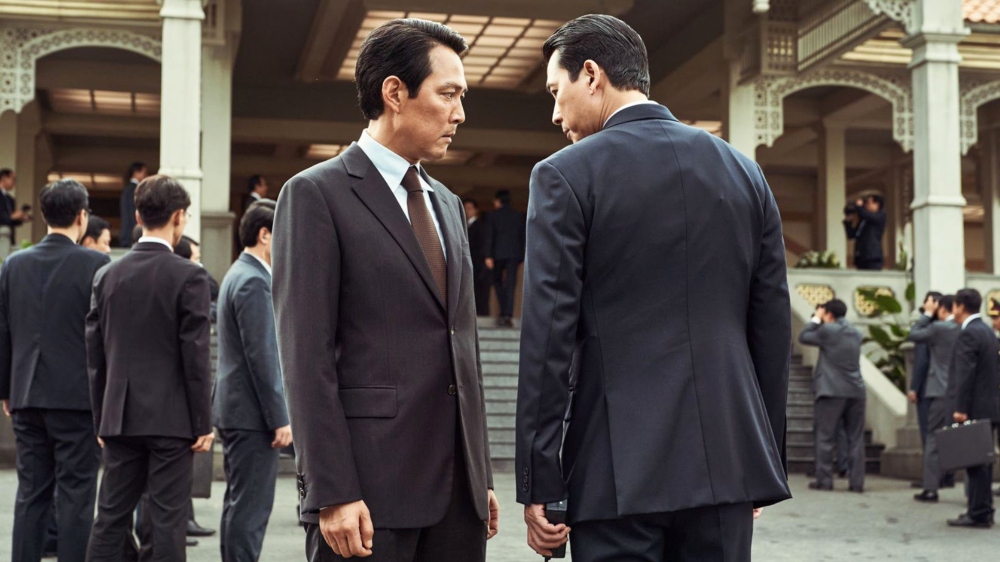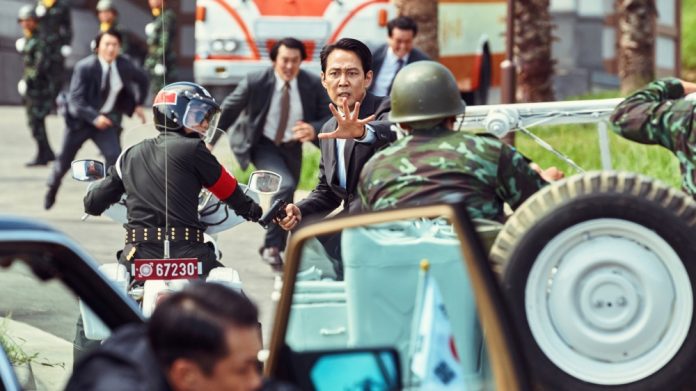Fans of Squid Game‘s Emmy-winning star Lee Jung-jae may not know that he was one of South Korea’s most successful actors before the series launched on Netflix. His career stretches back two decades and includes films like the cult romance Il Mare and Im Sang Soo‘s erotic thriller The Housemaid. Next up is the Star Wars series The Acolyte, which will pair him with Amandla Stenberg.
Before starting on that Lucasfilm project, Lee co-wrote and directed Hunt, a spy thriller in which he also stars opposite Jung Woo-sung. Set in the 1980s, when South Korea was ruled by a military dictatorship, the movie follows the hunt for a North Korean mole who has infiltrated the intelligence system. Lee and Jung play agents in rival spy departments who both come under suspicion.
Above the Line recently spoke to Lee over Zoom from London, where he is shooting The Acolyte and was joined by translator Isue Shin.

Above the Line: First, tell us everything that happens in The Acolyte.
Lee Jung-jae: [laughing] We’re working really hard filming the series. It has some very exciting action scenes, so if you wait a bit longer, I think there’ll be something to look forward to.
ATL: How do the events you depict in Hunt relate to current-day Korea?
Lee: Both time periods were marked by the prevalence of fake news and propaganda that had an unhealthy effect on our convictions. We’re in conflict with each other, which was also true in the 1980s. I really wanted to address this topic.
ATL: What were your experiences like in the 1980s?
Lee: I lived pretty close to a university campus. I have a lot of memories of students protesting [and] opposing police. The smell of tear gas is a very visceral memory for me.
ATL: One thing your film points out is that the people who believe in the system, no matter which side, are often the ones who are betrayed the most.
Lee: I don’t think anyone enjoys fighting. But there are always greater powers who instigate conflict for profit. That profit, and the architecture that allows it, results in situations that hurt citizens. I wanted to pose the question: what is the force that is really making us fight? If we thought more about that force, I think we would be on the road to [being] able to understand each other better and create a more peaceful society.

ATL: We have similar problems in the U.S., and it’s easy to get cynical about politics. How do you avoid cynicism in a film where neither side appears to be right?
Lee: Well, without giving too much away, there is a North Korean spy who experiences democracy for the first time when he comes to South Korea. He’s been taught that the North will go to war with the South to reunify the countries. But he comes to believe that negotiation is a better solution. He goes through a shift where he no longer really stands by the regime that raised him.
In a parallel way, his South Korean counterpart at first believes in the dictatorship. But when he begins to see the consequences — helpless citizens beaten in the streets — he sees that the military he’s defending has problems. He also goes through a shift where he can no longer uphold the values he’s been following his whole life.
Hunt tries to show that you can have mistaken convictions, but the moment you realize what they are, it’s important to reflect, to choose a better path. I tried to show that these convictions, or beliefs, are a natural result of certain environments, but that there has to be a desire to change, to improve.
ATL: Did you enjoy stepping behind the camera to direct?
Lee: It was very difficult, especially physically.
ATL: As an actor, did you find it easy to communicate with your cast? Could they ad-lib?
Lee: Of course, they should feel free to ad-lib, although I really like rehearsing, too. Maybe because I’m an actor, I want the cast to be in an environment where they can be natural and comfortable. That’s something I think a lot about while directing. I think it is a good approach to get more realistic performances.
Even in the script-writing phase, I was thinking of writing scenes and dialogue that were rooted in realism. I wanted to give actors lines that would feel interesting and natural to them.
The art department is another way to put actors in an atmosphere that feels real, that actors can react to and be inspired by [so they] really be in their characters.

ATL: The scope of your film is impressive. You have massive demonstrations in the streets, extended car chases, and some really harrowing combat scenes.
Lee: We shot most of the film with two cameras, but if there were a lot of characters we’d go to three. For those demonstrations, sometimes four camera bodies were used.
ATL: You have an intricate hand-to-hand fight with Jung Woo-sung that descends over several flights of stairs.
Lee: That staircase action scene was very important. These two characters seem very different at first. But I really wanted to convey visually that they become one as they are entangled together and rolling down the stairs like a ball. They start fighting [on] the second floor and then fall down the stairs and, you know, even though we put foam down on each staircase, it still hurt.
ATL: How involved do you personally get in setting up shots?
Lee: I did a lot of storyboarding and continuity work with my DP, Lee Mo-Gae. I’ve heard on some sets that you don’t plan everything from the first to [the] last shot. But for me, from the script-writing stage on, I worked with the DP to develop the visual aspects of the story. I think it’s very important for this film. So I worked for a month-and-a-half, two months, to really architect basically every frame.
Hunt is now playing in select theaters, and it’s also available to buy or rent on VOD.



